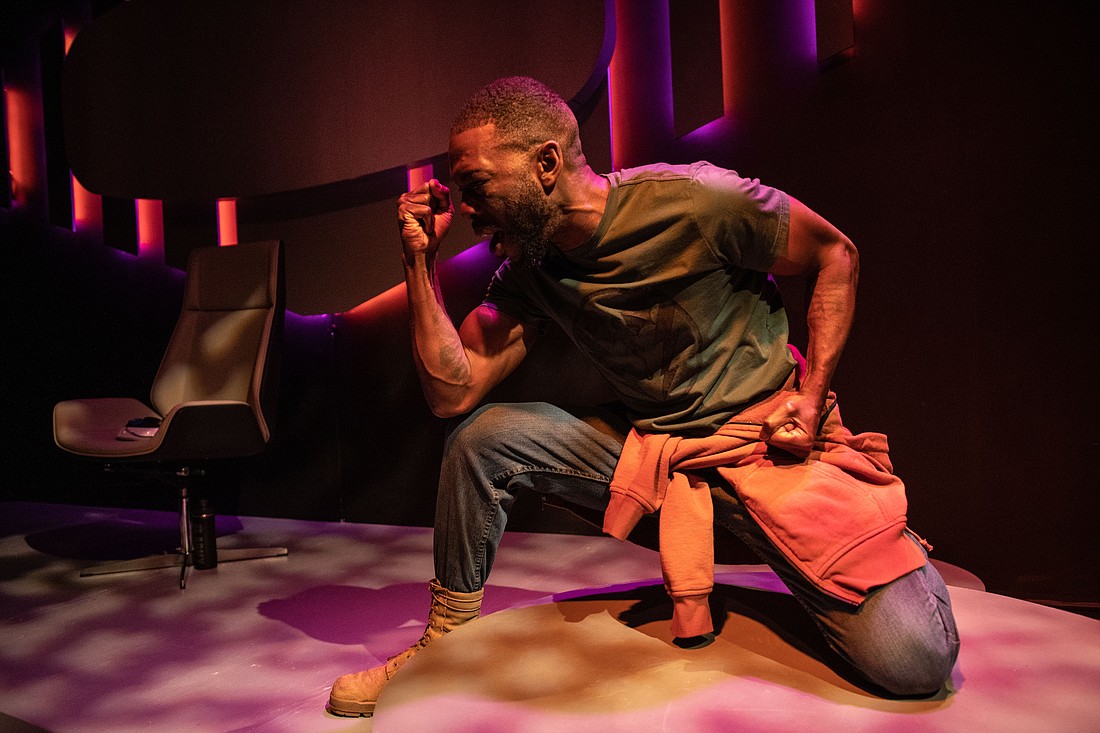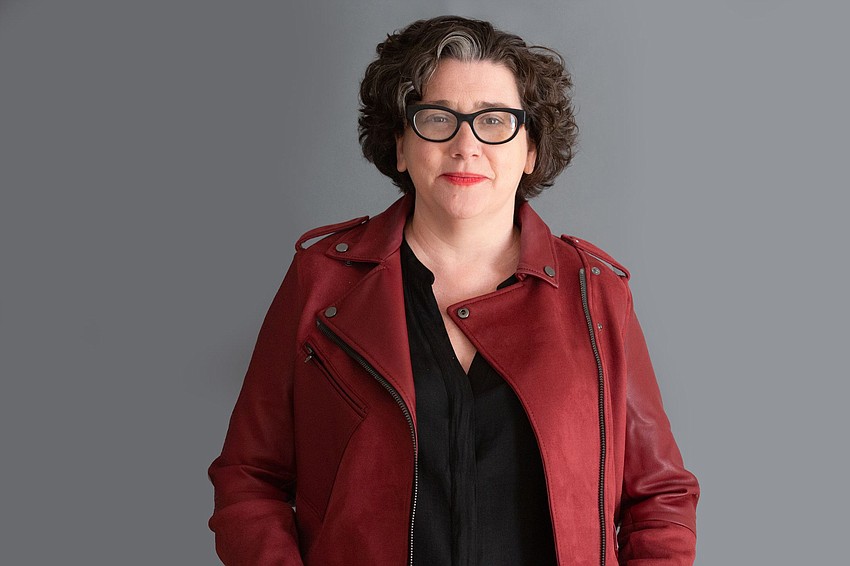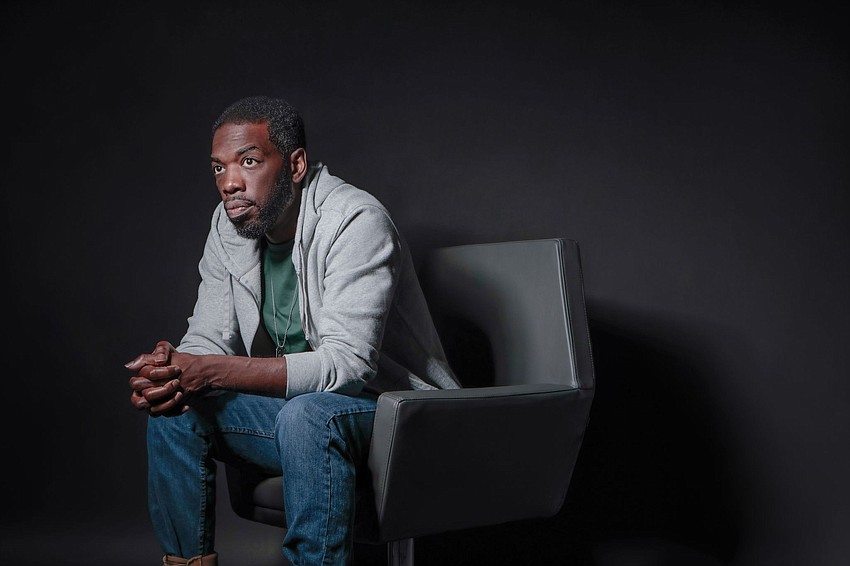- December 26, 2024
-
-
Loading

Loading

Until recently, plays such as Jacqueline Goldfinger’s “Backwards Forwards Back” and "Babel," which explore the human impact of emerging technology, were slapped with a “science fiction” label and performed in fringe venues.
But over the last decade, speculative tales have hit the mainstream in live theater. For playwrights like Goldfinger, that’s good news. "Backwards" is premiering at Urbanite Theatre and the playwright’s “Babel” was recently featured at FST Stage 3.
Not so long ago, rockets, radio and submarines were fodder for science fiction. When technologies predicted by Jules Verne, H.G. Welles and others became reality, stories about those futuristic inventions could be set in the present.
Developments like virtual reality, artificial intelligence and genetic engineering have also ceased to be fiction. The dreams of William Gibson, Neal Stephenson, Michael Crichton and others are no longer confined to the “not-too-distant future." They’re part of our contemporary lives.
While writers still use their imagination to create technology-driven stories, they can also look to the real world. Goldfinger found her inspiration for "Backwards Forwards" on the evening news.
An NBC News segment in March 2017 dealt with BraveMind, a form of VR exposure therapy developed at the University of Southern California's Institute for Creative Technologies.
In conventional therapy, treatment for a dog phobia might start with a plush dog puppet before gradually building up to contact with an actual puppy.
But recreating real-life battlefields is not feasible for treating traumatized veterans. With BraveMind therapy, traumatized veterans are introduced to sensory recreations of their traumatic incidents using VR goggles and audio input. As the sensory exposure time is gradually increased, their panic response diminishes and may ultimately disappear.
“VR technology had originally been developed for gaming,” Goldfinger says. “I was excited to see that it had evolved to the point that it was helping people — not only traumatized veterans, but their entire families.”

During the NBC News segment, Jimmy Catellanos, a Marine Corps veteran, spoke of the profound difference that VR therapy made in his life. “In 13 weeks, I’d completely changed who I had been for the previous 10 years. Before the treatment, 80 to 90 percent of my dreams were Iraq-related. Now, I can’t remember the last time I had one. I live in a completely different way now.”
Goldfinger has a personal connection to the subject. “I grew up with a grandfather who’d been in World War II,” she says. “He sometimes had strong reactions to different stimuli. As a child, I didn't know why; it was just something the family all knew about. It wasn’t until very much later that I realized my grandfather’s reactions were PTSD symptoms — and I could see how his sometimes violent outbursts resonated through the family."
"I think that moving VR technology from gaming to therapeutic settings can do so much good for people like my grandfather," Goldfinger says. "It allows us to help the traumatized veterans of World War II, Korea and Vietnam — and all the subsequent wars into the future."
She notes that VR-based therapy reduces the trauma veterans pass along to their children and grandchildren and helps returning warriors reintegrate into networks in their communities, including school, church and temple.

Goldfinger's one-man play, directed by Brendan Ragan and starring L. James, shows the impact of VR exposure therapy. We see the difference through the experience of The Soldier, played by James. While other characters don’t share the stage with him, their presence is very real.
“We never learn The Soldier’s name," Ragan says. "But he’s a very human character — and far away from the 1990s cliché of the veteran who shouts ‘hit the deck’ when a car backfires.”
He notes that Goldfinger frames The Soldier’s VR therapy in a larger context. “She doesn’t just focus on this character as an isolated individual," he says. "She shows you the collateral damage of The Soldier’s trauma to his entire family and web of human connections. Then she shows the radical difference his therapy makes to those relationships."
In Ragan's opinion, The Soldier’s humanity flows from Goldfinger’s interviews with several veterans around the country.
“Goldfinger brings her own family experience to the table, but she’s also done extensive research," he says. "She’s talked to VR therapists, and also to veterans who’ve gone through that therapy.”
Ragan conducted his own research in Sarasota. He drew on the resources of Operation Warrior Resolution, a veteran-run organization focused on treatment for veterans with PTSD. The director’s collaboration with the group made The Soldier’s world seem very real.
“Urbanite’s partnership with that organization has informed my approach as a director,” notes Ragan. “The people I’ve worked with share Goldfinger’s zeal for VR therapy — and applaud her willingness to confront big-picture veteran issues in her play.”
Kendra Simpkins, founder of Operation Warrior Resolution, is crystal clear about what those issues are.
“Operation Warrior Resolution doesn’t just treat veterans with PTSD,” she says. “We reach out to their spouses and children, because PTSD affects a veteran’s whole family and all of their close loved ones. You can’t help a veteran find healing in a good place until their whole family finds that good place too and gets better together.”
Goldfinger notes that VR immersion therapy helps achieve this healing. She adds that it’s not just a good idea — it’s part of the debt we owe veterans for their service.
“We’ve given these veterans the resources they needed for successful military campaigns overseas,” she says. “We need to devote whatever resources they need to lead successful lives at home.”